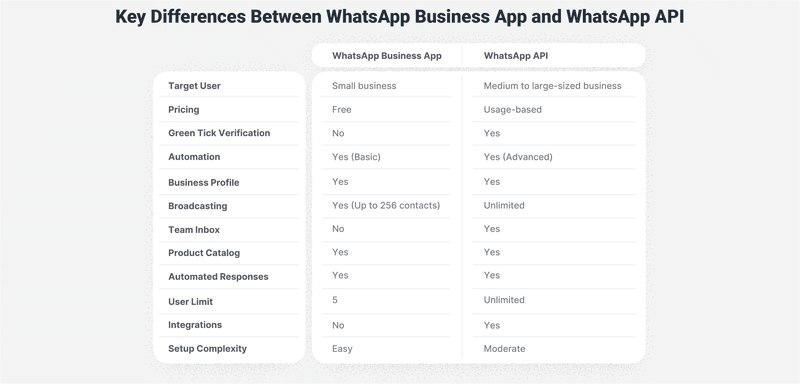
WhatsApp today is indisputably one of the leading messaging platforms, boasting of a user base crossing 2 billion globally. The platform has transcended beyond mere personal usage, finding significant utility in the realms of sales and marketing. However, the standard WhatsApp model presents certain limitations for these purposes, leading to the introduction and adoption of two business-oriented iterations: WhatsApp Business App and WhatsApp Business API.
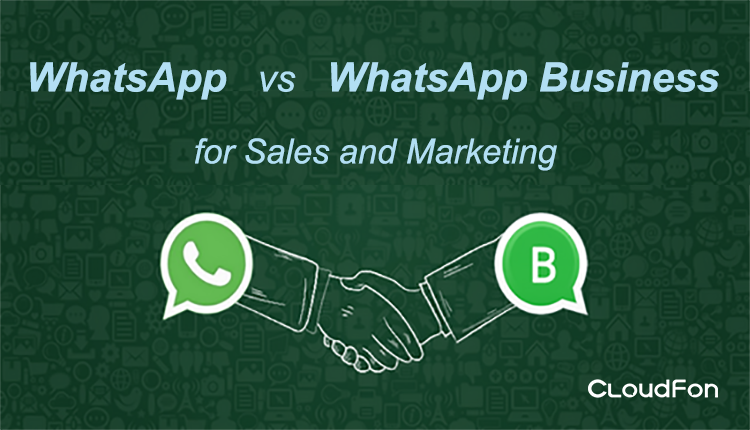
This narrative explores the imperative shift from the conventional WhatsApp to its business-centric alternatives for optimizing sales and marketing strategies, before delving into a comprehensive contrast between the WhatsApp Business App and WhatsApp Business API.
The conventional version of WhatsApp, while impeccable for personal use, exhibits clear shortcomings for business application. Its limited device accessibility - a maximum of 5, including the primary one, hampers large-scale customer engagement efforts considerably.
Another notable shortfall is the absence of official account verification which pivotal in establishing trustworthiness amongst customers. Additionally, the lack of features catering specifically to sales operations, such as conversation tracking and collaborative functionalities, makes regular WhatsApp a less viable option for business communications.
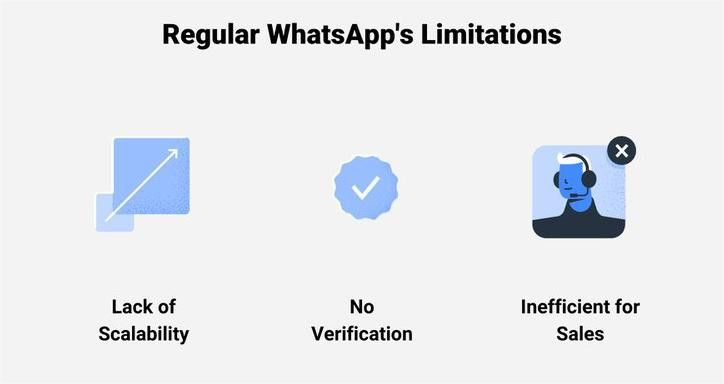
Primarily designed for the smaller business entities, the WhatsApp Business App is a cost-free solution accessible on both Android and iOS. It’s heralded for ease of use, with features like quick replies and chat labels. This version is specially crafted for businesses handling a modest quantity of customer interactions and is a suitable choice for those with a straightforward inventory of products or services.
While the WhatsApp Business App simplifies client communication for small businesses and comes equipped with basic automation capacities, it does have limitations in user support (capping at four) and lacks integration capabilities with CRM tools.
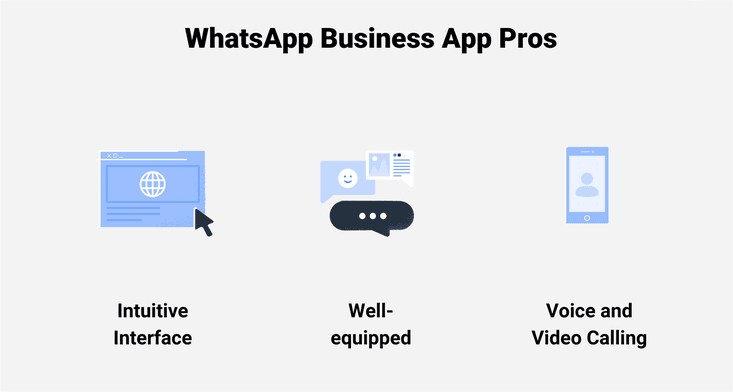
For larger corporations seeking a more expansive and scalable solution, WhatsApp API emerges as the formidable choice, enabling automated, managed, and monitored message exchanges on a vast scale.
Its standout features include extensive customization, account verification, and seamless integration capabilities with CRM systems, catering specifically to the complex communication demands of large enterprises.
However, WhatsApp API requires technical expertise for setup and lacks a native interface, necessitating external messaging software for customer interactions. Its pricing model, unlike the free Business App, involves charges that include number registration, messaging inbox, and WhatsApp's conversational prices.
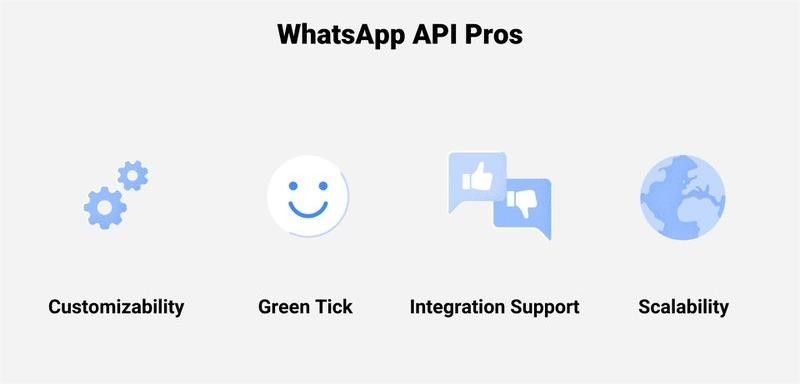
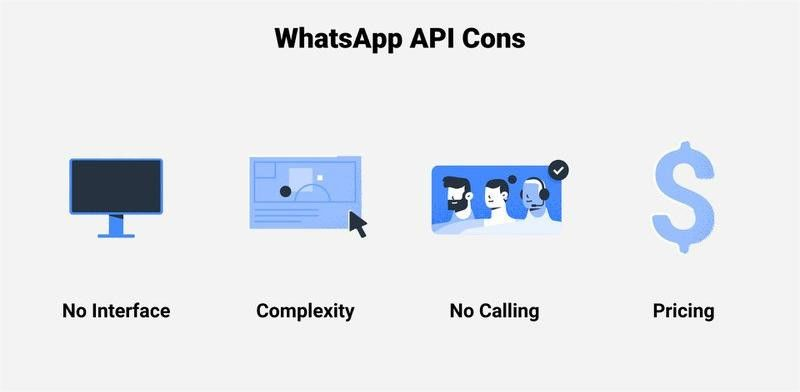
The choice between the WhatsApp Business App and API is contingent upon the unique demands and scale of a business. The Business App scores high on practicality and economic viability for small-scale vendors, whereas the API version, with its advanced functionalities, supports the expansive needs of bigger establishments.
Evidently, irrespective of the size, transitioning towards a WhatsApp business model paves the way for a more structured and effective sales and marketing strategy. At CloudFon, we've seen businesses flourish leveraging the WhatsApp API, offering our integrated solutions that enhance customer communication management through exhaustive automation and integration choices.
